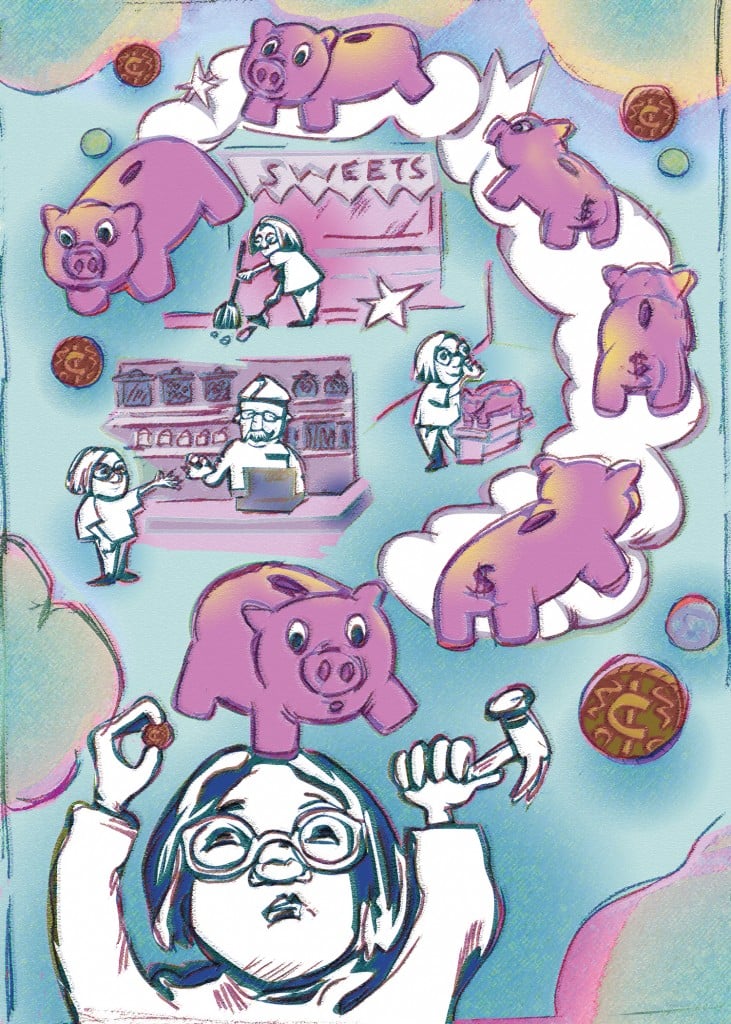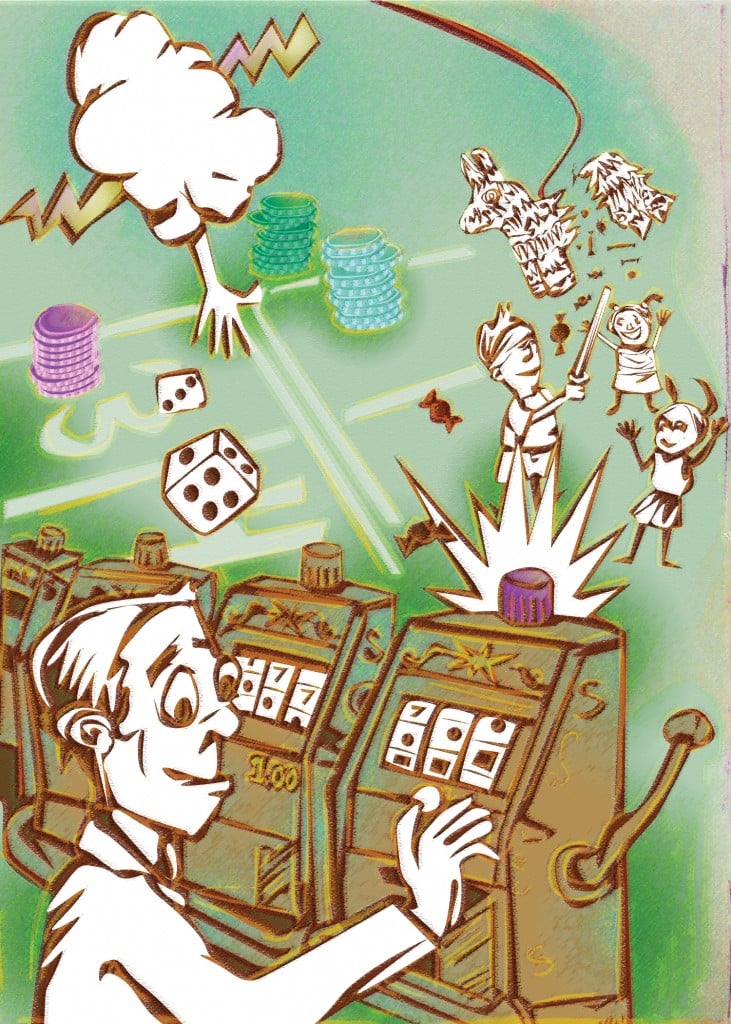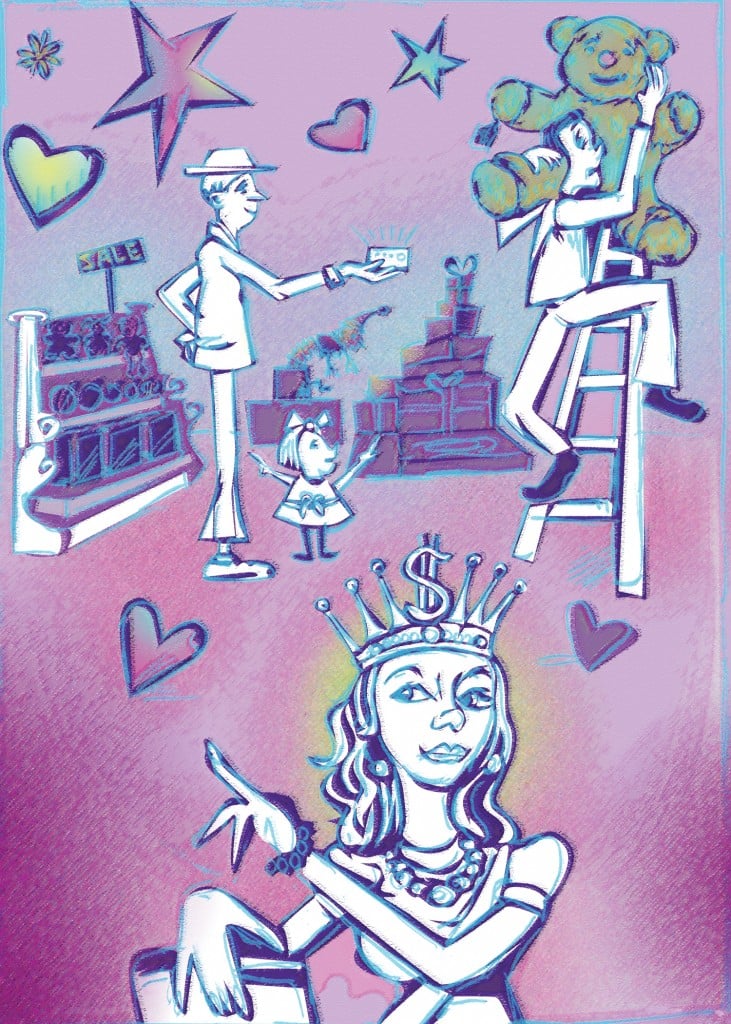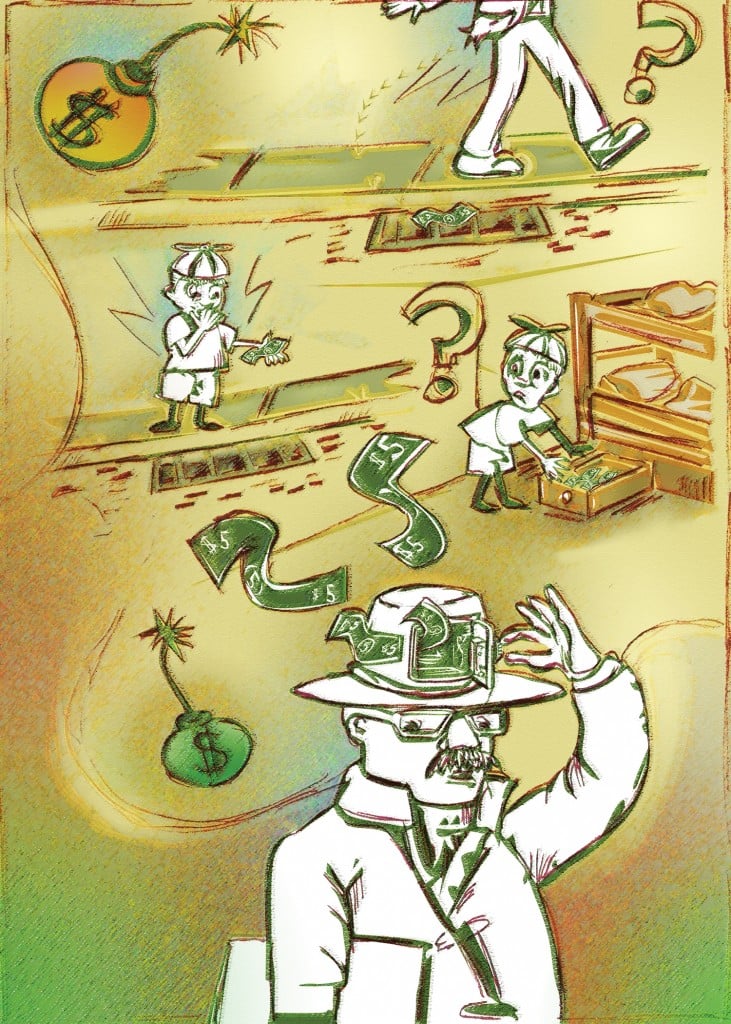Is Your Subconscious a Bad Financial Advisor?

Afraid to make money? Are you recklessly sabotaging your financial security? Can’t bear to spend a penny, even though you have plenty of wealth? If any of this sounds familiar, Brad Klontz can help.
Just as people develop personality traits from their life experiences, they also “learn” to relate to money from their parents and others around them or from early financial stresses, says Klontz, a Kauai psychologist and a research professor at Kansas State University.
To help understand this problem, Klontz, his father and colleagues developed the Klontz Money Script Inventory, which defines four main attitudes toward money that develop unconsciously through childhood and young adulthood, and may hinder future financial success. Financial advisers are using the inventory to help their clients understand subconscious choices that guide their investment decisions.
The four main scripts are:
- Money Avoidance
Money is bad or not deserved. - Money Worship
More money will always make things better. - Money Status
Money equates to self-worth and net-worth. - Money Vigilance
Money is shameful and requires secrecy.
The inventory uses more than 70 questions to separate people into the categories of behavior. While people generally fit mostly into one category, they can also exhibit characteristics from several categories or even all four, says Klontz.
“Money is the biggest stressor in the lives of Americans, above work, children, physical health, everything,” he says. “People have financial flashpoint experiences early in life that lead to money scripts, which are unconscious beliefs around money and drive all of their financial behaviors.”
Loren Kayfetz, a Certified Financial Planner on Kauai, gives an example, a wealthy woman in her early 50s with an aversion to comfort and luxury. “Her new financial situation was running afoul of her upbringing and imprints about money being dirty, something she should deny,” Kayfetz says.
“It was about growing up in a broken home, living on the edge with relatives … and having the feeling that to survive you have to minimize your expectations and not enjoy yourself. Though that happened 35 years ago, it still made the whole change in her life uncomfortable. She was getting into arguments with her significant other about expenditures, such as vacations and cars, because she couldn’t accept having money.”
Klontz helped her understand why she felt the way she did, to make her relationship with money “more conscious.” Though every case is unique, stress about money is very common, Klontz says.
“Even before the financial crisis, three out of four Americans said money was a significant stressor in their lives – and this was when (the economy) was doing great,” Klontz says. But, the subject of investing psychology had been almost ignored by psychologists, he says. That’s why he partnered with his father to create a treatment program for people with money issues and, for his work, he was awarded the 2009 Innovative Practice Presidential Citation from the American Psychological Association.
When it comes to money, investing, accumulating wealth and planning for a secure financial future, people often sabotage themselves without knowing why, Kayfetz says.
“I hired him to give a series of talks to my clients and their friends and associates about money scripts and money psychology … so people can get in touch with their decision-making. It’s getting more and more difficult to differentiate between how we feel and what we know.”
Klontz has been happy to help advisers unravel such problems.
“One of my most common calls is about a retirement-age couple financially enabling an adult child, maybe in his 30s or 40s, while the parents are self-destructing. The parents are giving money to the child and depleting their retirement fund.”
Another common scenario is based on fear of spending. “A lot of problems with spending are related to early emotional experiences,” he says. “For instance, the Great Depression – my grandparents’ generation – created a whole generation of hoarders. They were deathly afraid of losing money and that’s when you get under-spenders – people who have saved millions and are eating gruel. … Alternatively, if you believe that rich people are greedy, I can almost guarantee you’re going to sabotage yourself around the accumulation of money.”
Kayfetz says Klontz has been especially helpful with clients who have had a big windfall or suddenly inherited wealth,helping them understand “how to approach money and not be a money avoider, as so many of us are,” Kayfetz says.
Roberta Lee Driscoll, a Certified Financial Planner on Oahu, has also found Klontz’ scripts to be valuable tools when working with clients. “The majority of us are hard-wired one way or another, and some are hard-wired in regard to money so that they’re not good managers of their own money,” says Driscoll.
“As a financial planner, I can beat my head against the wall and say budget, budget, budget and set goals, set goals, set goals, but if they have issues from their childhood or the past, it doesn’t matter how much I tell them to budget. … I send them to Brad and he works with them, coaches them.
“There are a whole bunch of psychologists or coaches, but they’re not all good with money. He’s a specialist in money behaviors. That’s very unique.”
Driscoll has discovered that virtually everyone has a money script.
“Overspending is a huge problem,” she notes. “Overspending or spending inappropriately. It’s making decisions to spend on the wrong thing and then having to forego something you need. For instance, you buy something that’s very, very expensive and the net result is you don’t have enough for food. Or taking your paycheck and spending, spending, spending and saving nothing for retirement.”
Grant K.T. Kubota, a wealth- management and financial adviser at Morgan Stanley Smith Barney, says that understanding a client’s frame of mind and attitudes has been crucial.
“The first step in my consulting process is to develop an understanding of the clients’ values, goals, interests and relationships, in addition to their financial situation,” says Kubota.
He’ll start by finding out about clients’ tax situation, investment allocations, risks and liabilities. “More importantly,” adds Kubota, “I’ll need to develop an emotional understanding of the clients’ unique goals and values, which will include their risk tolerances. In general, the more information that I learn about clients during this first step will be beneficial in designing solutions to meet their financial goals and values.”
Kubota says he often starts with a series of questions, including: “Do you feel anxious when your investments fluctuate month to month?”
To Klontz, a deeper understanding of our personal “script” must start with reflection on what each of us learned or were taught about money.
“Every financial planner should ask questions such as, ‘What did you learn from your mother around money?’ ‘What did you learn from your father?’ ‘What was your most joyful and painful money experience?’ ‘What lessons did you take away with you?’ ‘How is that helping or hurting you now?’ You can help people become conscious of their beliefs and help challenge some of those beliefs that are only partial truths. It’s important to be self-aware. That’s the key.”
Money Avoidance
People in this category feel that money is bad or that they don’t deserve it, according to the Klontz Money Script Inventory. Money stirs up fear and may even provoke them to sabotage their own financial success. People with this script in their subconscious may avoid spending money even on reasonable purchases, and excessively worry about abusing credit cards or about bank overdrafts. In some cases, they may unconsciously spend money or give it away so they have as little as possible. People in this category generally have low incomes and net worths, and are more likely to be younger and single. However, as they age, their scores on the money-avoidance scale often fall.
Money Worship
People in this category believe more money will make things better and that a windfall or increase in income alone will solve their problems, according to the Klontz Money Script Inventory. This feeling can be associated with compulsive hoarding, unreasonable risk-taking, pathological gambling, workaholism, overspending and compulsive buying disorder. The feeling that money can solve your problems persists despite studies that have shown that once household incomes are above about $75,000 a year, there is no significant correlation between happiness and money. In fact, research also shows that, after initial excitement from a financial windfall, there is no lasting positive impact on mood. Money worshipers tend to be young, Caucasian and single, with a tendency not to pay credit-card debt fully each month.
Money Status
People in this category equate money to self-worth and net worth, according to the Klontz Money Script Inventory. Those who believe money is status see a clear distinction between socioeconomic classes. Being overly concerned with financial success has been associated with lower ratings of well-being, lower levels of vitality and happiness, and higher levels of anxiety, physical symptoms and unhappiness. Often those who said they were raised in poor families were more likely to follow money-status beliefs, which may put them “at risk for disordered money behaviors such as overspending or excessive risk-taking, with the goal of rapid wealth attainment in an attempt to raise one’s perceived social status,” says Brad Klontz.
Money Vigilance
For people in this category, money is a source of shame and secrecy, whether there’s a lot of money or a little, according to the Klontz Money Script Inventory.Spouses may hide spending from each other, and may develop financial behaviors that undermine their future security. Money vigilance is linked to watchfulness and concern about money and the sense that one must be heedful of impending danger. This may encourage saving, but excessive wariness can prevent enjoying the benefits and security that money offers. Members of this group were likely to be non-Caucasian, have lower incomes and avoid credit.
Personal Experience Led to Psychological Insight
By Beverly Creamer
Brad Klontz’ research on the psychology of money evolved from a disastrous personal experience: a huge loss in the stock market.
“I was fresh out of grad school and I had over $100,000 in debts from student loans and I was kind of desperate to get out from under it,” he remembers. “Basically, I came from a family that was not that well off financially and I think that inspired me to do things differently than my family did. They didn’t invest in the stock market at all, so when I got out of grad school, all my friends were making tons of money in stocks and I thought, ‘I’m going to do that.’ I sold everything I had and put it in the stock market and lost half my money when the tech bubble burst. Why would a normally intelligent person do something so stupid? I couldn’t find any answers in looking around in psychology, so the pain of that experience led to my research.”
His search for answers began with intensive interviews with family members about their histories with money.
“That was a profound awakening,” he says. “I realized it was predictable that I would do something so stupid based on my multigenerational family history. So the basic theory I’ve developed with my father is that people have experiences early in life that lead to money scripts, which are typically unconscious beliefs about money and drive all of our financial behaviors. The belief that really came up for me was there will never be enough money. I found my grandfather’s family lost all of their money when the banks collapsed in the Great Depression. He died at 94, and as a kid saw all of the family money wiped out. Afterwards he never put a dollar in a bank. It was in a box in the attic.
“The more powerful the experience, the more rigidly we hang onto those beliefs. That’s why financial therapy is so important. My mother came along and she jumped on that bandwagon and would only put money in CDs, so missed out on all the growth in the stock market. Then the next generation is going to do either the same thing or the exact opposite, saying to themselves, I don’t want to be like them, I don’t want to be poor, so I’ll invest in the stock market. So when I looked at that it’s no wonder I would do something like that. But it got me interested in the study of money beliefs.”










